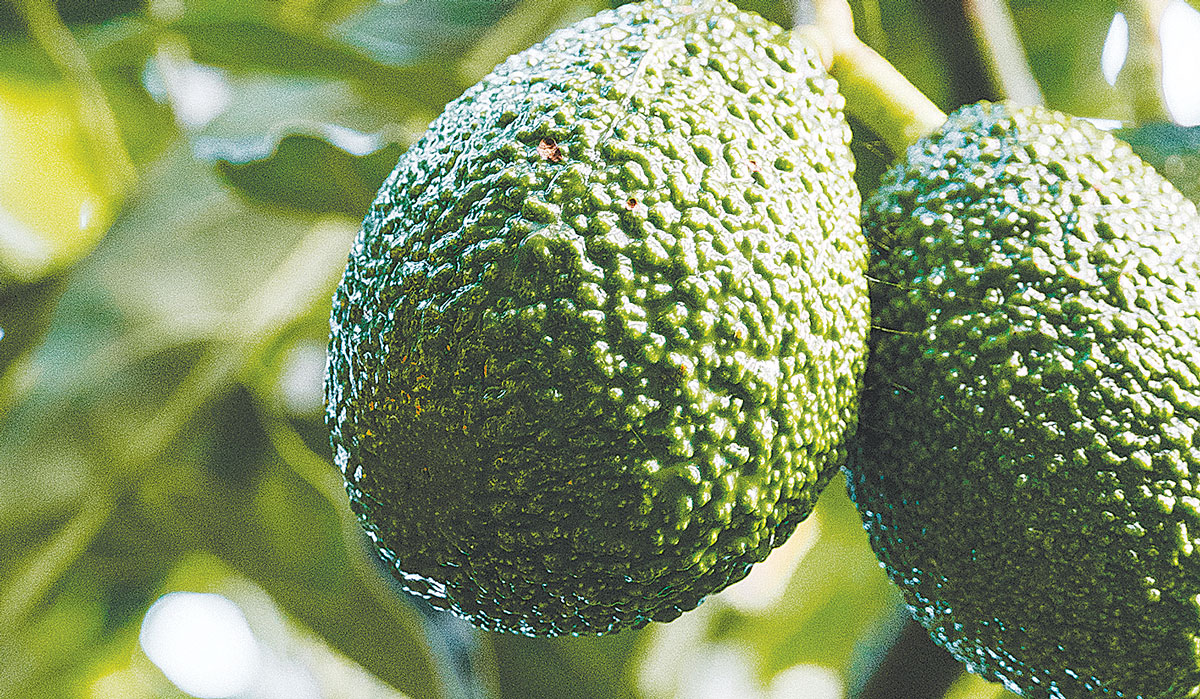NZ avocado growers report mixed season amid weather challenges
Avocado growers are reporting a successful season, but some are struggling to keep their operations afloat following years of bad weather.
Australian growers want their consumers to buy home-grown avocados and ditch imports from across the ditch.
A bumper national production has caused a glut in the Australian domestic supply with imported avocados from New Zealand making the situation worse, local growers claim.
Avocados Australia chief executive John Tyas told Rural News they want Australian consumers to ask for locally grown avocados in stores.
"We support our Australian growers so we want to see Australian avocados in stores," he says.
However, NZ Avocado chief executive Jen Scoular says it has long standing relationships with avocado customers in Australia.
"Our exporters are committed to filling their orders and servicing those customer relationships," she told Rural News.
Media reports in Australia say farmers are dumping avocados as plummeting prices make it unviable to pack and send it to the markets.
Last month, Avocados Australia announced that the national avocado production was expected to continue to increase to 170,000 tonnes by 2026, more than double the 2020-21 crop of 78,000 tonnes.
Calling it 'the avolanche,' it claimed Australian avocado growers are able to more than meet demand and there was no need for imported avocados.
For New Zealand avocado growers, Australia remains it biggest export market but alternative markets are being developed.
Scoular says New Zealand has been exporting avocados to Australia for more than 40 years. She says NZ Avocado exporters have built strong relationships with Australian retailers during the past 40 years.
“As the two key country of origin suppliers of avocados to Australia, New Zealand and Australia have had a long standing relationship of open communication and dialogue,” Scoular says.
“The increasing plantings of avocado trees in Australia has meant that an increase in Australian grown avocado supply has been forecast for many years.
“New Zealand has been developing alternative export markets across Asia for the past 10 years to reduce the reliance on Australia as our main export market,” Scoular adds.
But Australian growers want to see an end to imports. Tyas says it is supporting the Australian avocado growers.
“There is not a need for additional imported product to supply our domestic market this year. And this trend is likely to continue as, according to our forecast, production is expected to double over the next five years.”
Tyas admits that the current glut has been caused by an increased supply of avocados by Australian growers and not by imports from NZ.
“Growers planted a significant number of trees to meet demand and now they are in production this year,” he explains. “We have just reached a level where Australian production can supply the whole country all year round.”
 |
|---|
|
Last season New Zealand exported 4.3 million trays of avocados to Australia. |
NZ Exports
Last season New Zealand exported 4.3 million trays, each weighing 5.5kg, of avocados to Australia, of a total crop volume of 7.3 million trays.
This season New Zealand is forecasting 2.6 million trays to Australia, of the 7.5 million trays forecast.
The remainder of the New Zealand crop will be sold in New Zealand and exported to ten other countries across Asia and the Pacific – including China, South Korea, Thailand and India.
NZ Avocado chief executive Jen Scoular says NZ avocado exports to Australia are 40% down on last season’s volume, while avocado production out of Western Australia is 324% up on last season’s volume.
“NZ has tripled the volume of avocado exports to markets outside of Australia in 2021,” she says.
Tickets are now available for Beef + Lamb New Zealand’s (B+LNZ) Out the Gate, returning from 19-21 May 2026 at Te Pae, Christchurch.
Dairy Women's Network (DWN) is welcoming AgriHealth as a new partner.
Northland Field Days patron Ross Newlove remembers the inaugural field days he attended 40 years ago.
Southland farmer Murray Donald has been appointed as chair of Safer Farms, the industry-led organisation focused on reducing harm, injuries and fatalities in the agricultural sector.
National Lamb Day returns this Sunday, 15 February, with Beef + Lamb New Zealand Inc calling on Kiwis to fire up their barbecues and celebrate the people and the product that put New Zealand on the world map.
When it comes to arranging the sound system at Northland Field Days, no one does it better than Colin Finlayson.

OPINION: Here w go: the election date is set for November 7 and the politicians are out of the gate…
OPINION: ECan data was released a few days ago showing Canterbury farmers have made “giant strides on environmental performance”.